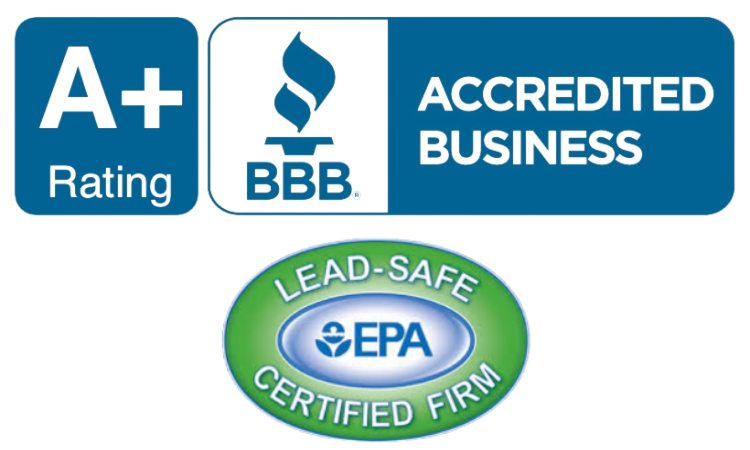
There is the pride and achievement of homeownership, but there are also responsibilities that must be met when it comes to home maintenance and repair. Home repairs can be quite costly, whether it is repairing a leaky roof, updating old electrical wiring, or repairing necessary items to keep the house safe and comfortable. Fortunately, a number of grants exist to help homeowners defray these expenses. In this guide, we will see how to obtain grants to repair your home and programs that can help you.
What Are Home Repair Grants?
Home repair grants are the financial assistance provided by the federal government, state departments, or non-governmental organizations to help homeowners with necessary repairs. These grants are not repaid like loans, which is why they are an excellent source of funds to people who need money. These grants may be used to finance various repairs for the home such as structural repairs, roof replacement, plumbing repairs, energy efficiency repairs, and so on.
Why Are Home Repair Grants Important?
Repair expenses may be too much to handle for many homeowners. Home repair grants can assist in reducing financial stress, so that you can maintain your home in good shape without having to go into debt. Moreover, such grants can be used to enhance the safety, accessibility, and energy efficiency of your home, which will lead to long-term utility and maintenance costs savings.
Types of Home Repair Grants
Federal Home Repair Grants
There are a number of programs provided by the federal government that offer financial aid for home repairs. Perhaps the most popular of them is the Single-Family Housing Repair Loans and Grants Program of the U.S. Department of Agriculture (USDA) Rural Development. This is a program that assists low-income homeowners in rural areas in repairing and maintaining their homes.
Local and State Government Programs
Along with federal programs, numerous state and local governments provide home repair grants. Such programs are frequently area- or home-type specific and can assist with repairs that enhance safety, energy efficiency, or housing conditions.
Non-profit Organizations and Charitable Grants
Many non-profit organizations provide grants to repair homes, especially to low-income families, the elderly, or veterans. These organizations tend to collaborate with local governments or other donors to finance these grants.
Energy-Efficiency Grants
If your house requires some energy efficiency upgrades, you may be able to obtain grants that are specifically meant to enhance the energy efficiency of your house. There are programs that fund improvements that cut energy usage and utility bills such as Energy Star and Weatherization Assistance.
Steps to Apply for Home Repair Grants
You can easily apply for home repair grants, provided you take the right measures.
The following is a step-by-step guide that will assist you in the application process:
Research Available Programs
The first step is to do research about the home repair grants in your area. You may visit the websites of federal and state agencies, local government, and non-profit organizations. A lot of information about grant opportunities can be also found in local libraries or in community centers.
Some useful websites include:
Grants.gov: This is an official federal government site of grant opportunities. You can search grants on home repairs and energy efficiency programs.
USDA Rural Development: Single Family Housing Repair Loans and Grants Program; visit the USDA site to find information on this program.
State Housing Authorities: Go to the website of your state housing authority to find out about state programs.
Check Eligibility Requirements
Each grant program will have its own eligibility criteria.
Some of the common requirements include:
Income Limits: The majority of home repair grants are aimed at low- and moderate-income families. Find out the income ceilings of each program to see whether you qualify.
Homeownership Status: You are usually required to be the homeowner in order to get grants. Most programs may not apply to renters, but there may be energy-efficiency grants that can be used by renters.
Age or Disability Status: Most of the programs provide extra support to the elderly or disabled.
Gather Necessary Documents
After finding the grant programs for which you qualify, the next thing to do is to prepare the documents.
These may include:
- Proof of income
- Documentation of home ownership (e.g., mortgage statement or property tax statement)
- Identification (e.g., Social Security number, driver’s license)
- Records of repairs required (e.g., contractor estimates, photos)
Getting all your paperwork ready will also assist in a faster application process.
Submit Your Application
Apply through the guidelines stipulated by the grant program. There are numerous programs where you can apply online, and there are some that might need paper applications. Always fill in all the forms correctly and completely, and provide any supporting documentation requested.
Follow Up on Your Application
Once you have sent in your application, you should send a follow-up to the program administrator so that you can be sure that your application is being looked at. Some programs may require additional information or documentation. Be proactive in addressing any requests promptly.
Other Financing Options for Home Repairs
Although grants are a great option, they are not always offered and may not provide enough to cover all the repairs you might require.
There may be other funding options available to you if you are not eligible to receive a grant or require more funding:
Home Equity Loans or Lines of Credit: You can use equity in your home to finance repairs, provided that you have it.
Personal Loans: Unsecured personal loans may give you the money you want to repair your house but without posing a threat to your home.
Credit Cards: If the repairs are not very extensive, the use of a credit card can be an alternative. Just be mindful of high-interest rates.

